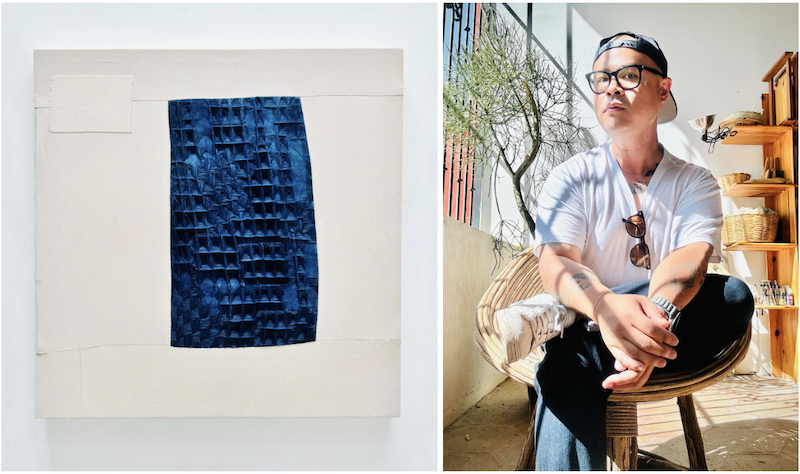
Jovencio de la Paz is an artist, weaver, and educator. Their work considers the interrelated histories of weaving and computation. Collaborating with machines and computational intelligences in their practice, de la Paz creates a variety of computer softwares that algorithmically generate weave structures, capturing both intentional and errant activities of those programs as woven cloth. Their work addresses tensions between geometric abstraction and materiality, as well as the instability of woven surfaces, which can present themselves as images but ultimately betray themselves as objects. They are currently an Associate Professor and the head of the Fibers studio area at the University of Oregon in Eugene, Oregon.
In this lecture, de la Paz will explore their practice as a weaver and digital native, and present new and on-going bodies of work that utilize an adaptation of Nils Aall Baricelli’s 1956 software “BioNumeric Organisms” to generate unique weave structures and textiles. De la Paz will consider how this software and its place in the history of computation help orient criticality and optimism around emerging technology.